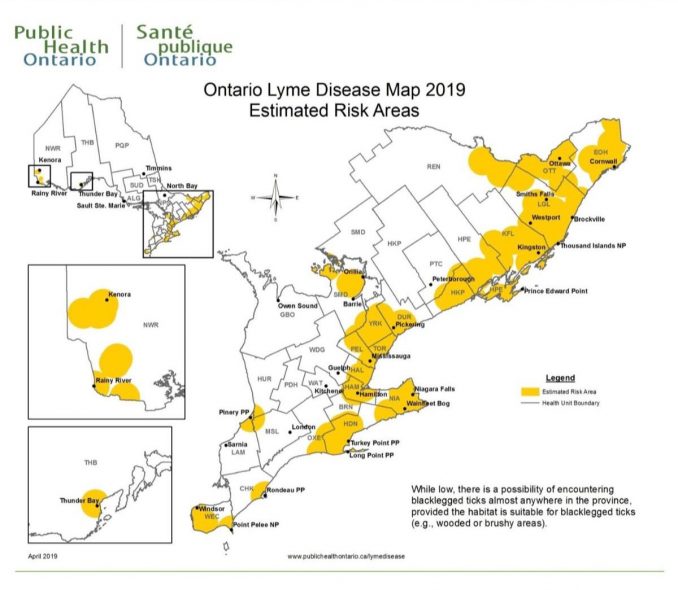
Learn what you can do today to protect your pets against tick-borne diseases
Did you know that Toronto is considered a high risk area for Lyme disease?
In Ontario, ticks have been implicated in the transmission of nearly a dozen human and animal infectious diseases, including lyme disease, ehrlichiosis, anaplasmosis and babesiosis. Ticks will attach onto your pet (or you) and bury their head in their host to feed on blood. They are active during any temperature above 0℃, meaning your pet is at risk of tick bites and infections almost year-round.

Tick activity is temperature-driven, not seasonal.
At Centre Street Animal Hospital, we normally recommend tick-preventative medication for 9 months of the year as ticks can be active as early as February and as late as December (adult ticks are most active in the spring and fall, and nymphs (younger ticks) prefer the warmer months of July/August).With the milder winters we’ve been experiencing, we are monitoring the tick activity closely each year, and year-round tick protection may become recommended in the near future.
The bottom line is – if it’s above freezing, both you and your pet should be protected from ticks, no matter what month of the year! This is why it is important to speak to your Veterinarian or veterinary technician about simple-to-use tick medications for your pet. There are now several choices available, and depending on their environment and risk, we can recommend the correct product for your pet’s individual needs. Determining the diseases present in your area, annual testing for these diseases, and taking extra precaution outdoors are also recommended.
How to check for ticks on your pets:
When the benefits greatly outweigh the risks.
As with any medication, there is a small chance of side-effects. All products in the isoxazoline class (tick & flea) have potential for neurological side-effects in dogs and cats. We are aware and attentive to the media surrounding this class of medications, however, it is important to also consider other contributing factors such as prior medical conditions, underlying disease, other medications used at the same time, and severe overdose.
The FDA considers products in the isoxazoline class to be safe and effective for dogs and cats, and issued its safety communication so that pet owners and veterinarians can take it into consideration when choosing flea and tick products for their pets. We are 100% confident that the benefits of these medications vastly outweigh the very low risk of an adverse reaction. The well-being of our patients is incredibly important to us and we take great care in completing a proper examination and assessment to determine the most suitable course of treatment for your pets.

As a pet owner, you play an equal part in your pet’s healthcare, and we are here to educate and support you in every decision. Call us today to speak to our veterinary team about your pet’s current tick preventative regimen, or to arrange a visit to pick some up today. As always, we are here to help and answer any questions you may have.
